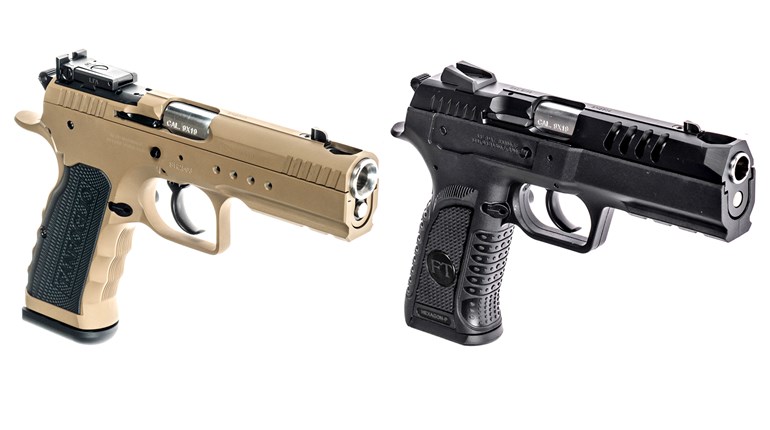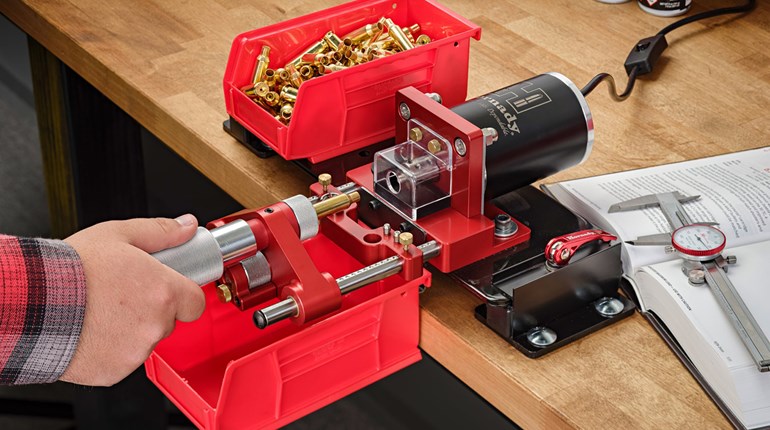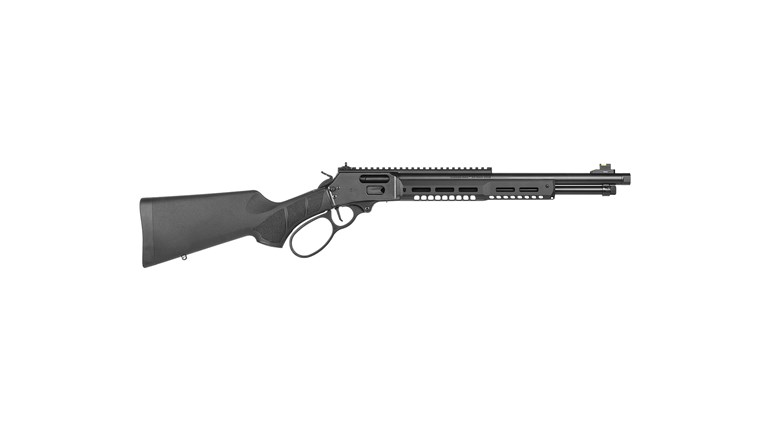
The year 2009 could have easily be dubbed the Year of the Black Rifle. Many manufacturers of AR-style rifles I spoke with said, during the last year they were shipping their self-loading centerfires as fast as they could build them. Most every part or component for these rifles was in short supply or out of stock. But what about the AR's arch-nemesis? What about the AK?
No Longer the Enemy
For decades the Avtomat Kalashnikova was viewed as the weapon of the enemy—a symbol of the Iron Curtain and Communism. When the Soviet Union collapsed and the former communist states began to warm to freedom, the door was opened for the import of previously unavailable firearms and ammunition.
During the last two decades, American shooters have warmed to the Kalashnikov design, particularly due to the fact that imported AKs were priced right. The strength of the American dollar allowed firearms-import companies to bring rifles in from former Communist-bloc nations and sell them for very reasonable prices here in the states.
Americans also realized these rifles are easy to control and manipulate. Similarly, folks came to understand that the rifle's standard chambering of 7.62x39 mm was more than up to the task for personal/home defense. It goes without saying that high-quality, American-made ammunition should be used for personal defense. Hornady, for instance, has self-defense loads in both 7.62x39 mm and 5.45x39 mm.
Over the years, the availability of AK rifles has ebbed and flowed. Right now, the tide is high again, and numerous makes and models are available. For example, the latest Century Arms catalog lists more than a dozen Kalashnikov-style rifles in a variety of configurations, including both 7.62x39 mm and 5.45x39 mm chamberings.
Designed by Mikhail Kalashnikov, one of the few living legends in the firearms world, the AK-47 was a triumph of battle-rifle design. Like all things Soviet, the military service rifle had to be inexpensive to manufacture. However, it also had to be infinitely reliable, as it would be subjected to some of the harshest environments known to man.
I won't spend a lot of time on the engineering particulars or history of the AK, as that area has been covered in detail. Instead, we'll spend some time considering the particular operating characteristics of the Kalashnikov and how to most efficiently run the rifle.
Running the Gun
First of all, you control the AK just as you would an AR—or a semi-automatic handgun for that matter. The dominant hand remains on the pistol grip and fires the weapon. The off-hand does the support work, including loading/reloading and charging.
Safety Lever

Let's jump right in and talk about the safety lever. This is one area where AR shooters get frustrated. Located on the right side of the frame, the manual safety on the AK is a large, shaped-sheet-metal lever. "Safe" is the uppermost position. This also prevents the bolt from moving all the way to the rear to chamber a round. Push the safety lever down to fire. This lever was designed with the understanding that Soviet soldiers would need to operate it while wearing heavy gloves.
As 90-plus percent of the population is right handed, we'll talk about operating the safety from a "righty" perspective. With your right-hand thumb hooked around the pistol grip, place the middle finger of that hand on the safety lever. Use that finger to sweep the lever from safe to fire and back again when you are done firing.
From a "lefty" point of view, the safety is most easily operated with the right, support hand. The most efficient way to move the rifle from safe to fire using a left-hand hold is to grip the front of the magazine with the right hand. Your right thumb rests on the safety lever. When it's time to fire, the right thumb sweeps the lever down and assumes a support grip against the side of the receiver. After firing is complete, your right thumb or forefinger can click the lever back up to safe.
Charging

Charging the rifle while maintaining a constant grip with the right hand can be accomplished one of two ways: over or under. After a magazine is secured in the rifle, come up under the gun with your left hand. Using an open palm, pull the charging handle to the rear and let it go. Allow the recoil spring to do its job and seat the bolt. Personally, I find this the fastest, most efficient way to charge the weapon.
The second method for charging the gun with the support hand is over the top. Insert and a secure a magazine, then cant the rifle inboard so the ejection port faces up. Reach over the top of the receiver and vigorously charge the bolt. Again, allow the heavy recoil spring to do its job. Resist the urge to ride the bolt forward.
If, for some reason, the bolt does not seat fully, the shooter can merely tap the charging handle to completely close the action. This scenario is possible should the rifle become extremely dirty or the magazine be fouled with mud, sand or grit. I've been running an AK for nearly 20 years and can't recall a time when a clean, lubricated gun failed to properly chamber a round when the bolt was charged swiftly and deliberately.
Loading and Reloading
ARs load straight up into a magazine well like pistols. The AK loads—like most classic battle rifles—by hooking the forward portion of the magazine into the mag well and rocking it rearward. A large, ambidextrous magazine latch provides a loud click when the magazine is secured. There is little doubt in the shooter's mind whether the magazine has been seated properly. From a practical standpoint, if you do not secure a heavy steel AK magazine into the gun it will not just hang there, it will fall out.
On most AKs, the magazine latch is stiff, or tough if you will. This is not necessarily a negative since that strong spring/latch holds the magazine securely in place. Several years ago, I was taught a technique to rapidly reload the AK without depressing the magazine latch with my support-hand thumb.
First, secure a fully loaded magazine from your kit. Hold the magazine so it is angled out, bullets away from you. Use the magazine body to hook and sweep the rifle's magazine latch. When done correctly, this releases and clears the empty mag out of your way. Hook the forward edge of the fresh magazine into the well and rock it back.
If you have never tried this method, you'll be amazed at how simple it is. From a time-saving perspective, it will cut your reloading time by at least half. Whether you are running an AK for defense or sport, you will appreciate this method. Naturally this timesaving technique works equally well for right- or left-handed shooters.
Getting On Target
As for target engagement, we run the AK like any other semi-automatic rifle. Keep the stock up near the shoulder with the rifle flat and the muzzle depressed. When it's time to engage, roll the rifle up to your head, sweep the safety and drive on.
Some folks prefer to hold the fore-end with their support hand. Others like to hold on to the magazine. Either one will work. Holding onto the magazine will not foul the weapon or result in a stoppage. They aren't fragile.
If you are going to run/train seriously with an AK, wearing some type of shooting gloves is highly recommended. The safety lever and magazine latch will scrape and cut bare hands.
Maintenance
Yes, the AK design is extremely robust. There is no denying that it will take abuse. However, any rifle is still a machine built by man. Any machine, firearm or otherwise, will operate best when kept clean and well lubricated. Even the venerable AK needs oil.
Also, be aware that inexpensive, imported ammunition is often corrosive. Most AK barrels are chromed to prevent corrosion, but your bolt and other internal parts will rust. If you found an unbelievable deal on ammo, chances are high it is corrosive.

Plain or Fancy
Just as with the AR, the AK can be as plain or fancy as you like. A stock rifle should serve you well for basic shooting needs. Practical upgrades abound. One of the best things you can do for your AK is to add a muzzle brake. The Krinkov-style brake dampens recoil and it helps you stay on target for follow-up shots.
At the 2010 SHOT Show, Midwest Industries unveiled a new aluminum rail system for the AK. The four-way rail can be installed on your workbench with no gunsmithing necessary. This will allow you to mount optics, lights, vertical-grips and other accessories.
Replacing the stock and/or pistol grip on an AK is a simple process as well. Numerous companies offer AK pistol grips. Tapco offers fixed, side-folding and retractable stocks for the Kalashnikovs. Again, you can change them out on your kitchen table. Tapco also offers polymer 7.62 mm and 5.45 mm magazines.
Parting Shots
When held in skilled, trained hands, the AK can be a tremendously formidable home-defense tool. How about shooting sports? A few months ago, I attended a local 3-gun match. While the AR was well represented, two competitors were running AK-variants.
The shooters had trained well with them and held their own against the Stoner designs.
Once we've gotten over the "weapon of the enemy" stigma, we can see how practical and effective the AK can be. On average you will pay half of what you might spend on a comparable AR rifle. Ammunition is readily available for training and personal defense. Despite the increases in ammunition prices across the board, the AK is still one of the most inexpensive centerfire rifles to shoot. All of these attributes make the "other black rifle" a solid choice for the American shooter.




































